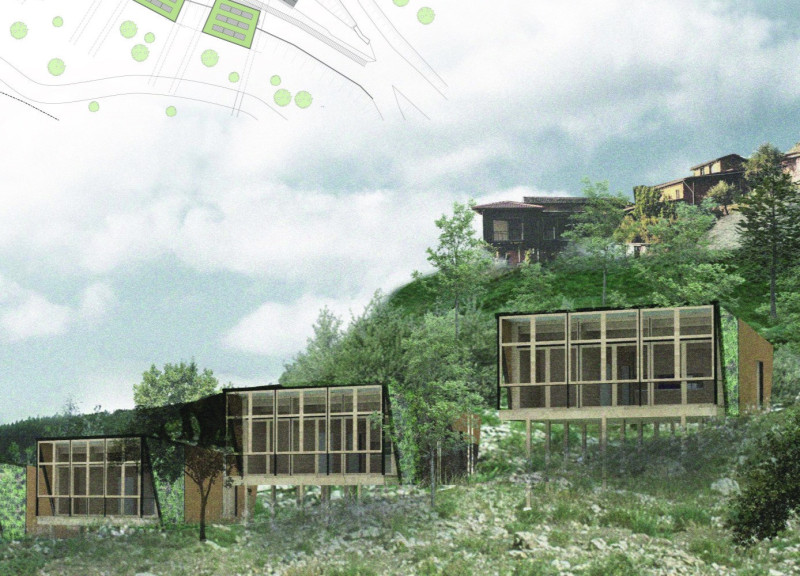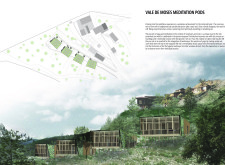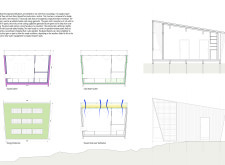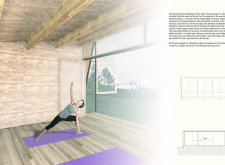5 key facts about this project
The main function of the Vale de Moses project is to provide a tranquil environment where individuals can engage in meditation and yoga practices. Each pod is strategically positioned to ensure a unique interaction with the natural environment, allowing users to immerse themselves in the soothing sights and sounds of the landscape. This layout reflects a keen understanding of users' needs for both privacy and connection, providing secluded spaces without isolating them from the beauty that nature offers.
Significant to the design of the meditation pods is their materiality. The use of natural wood for cladding and structural elements provides not only visual warmth but also a textured connection to the landscape. Cross Laminated Timber (CLT) is utilized for its renewable qualities and structural integrity, ensuring that the buildings are sturdy yet lightweight. The choice of materials supports the project’s ecological ethos while enhancing the sensory experience, as the natural grain and tones of the wood resonate with the surrounding environment.
The architectural design features expansive glass panels that invite natural light and panoramic views, creating a seamless transition between indoor and outdoor spaces. These elements facilitate an awareness of the changing light throughout the day, fostering a dynamic interaction between users and nature. Operable windows enhance ventilation, promoting a sustainable climate control approach that minimizes the need for mechanical systems.
Unique design approaches are evident throughout the project. The green roofs, covered with native vegetation, serve multiple purposes: they enhance insulation, support local biodiversity, and manage rainwater runoff in a sustainable manner. This design choice not only contributes to the aesthetic qualities of the pods but also reflects an understanding of ecological responsibilities.
Further, the project embraces the principles of passive design, with layouts and orientations that optimize solar exposure and natural ventilation. The minimalistic interiors, characterized by gentle color palettes and unobtrusive furnishings, foster a calming environment conducive to meditation. The thoughtful arrangement of spaces allows for flexibility, enabling users to personalize their experiences based on their needs.
The Vale de Moses Meditation Pods exemplify a holistic approach that respects the natural landscape while prioritizing user experience. Each architectural detail is meticulously considered, ensuring that form and function coexist harmoniously. The project stands as a testament to contemporary architectural practices that seek to harmonize built environments with their natural contexts.
For those seeking a deeper understanding of this architectural endeavor, exploring the project presentation will provide comprehensive insights. Architectural plans, sections, and various design elements illustrate the nuanced ideas that informed the development of this unique meditation retreat in the serene backdrop of Portugal. Review the discussion on architectural ideas to appreciate the thoughtful integration of design principles that characterize this project.


























